Climate & Environment
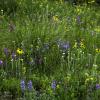 <p>Rising levels of atmospheric nitrogen pollution threaten plant diversity at nearly one-quarter of sites across a widespread portion of the U.S., according a new study led by University of Colorado Boulder researchers.</p>
<p>Rising levels of atmospheric nitrogen pollution threaten plant diversity at nearly one-quarter of sites across a widespread portion of the U.S., according a new study led by University of Colorado Boulder researchers.</p>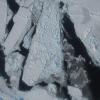 Arctic sea ice was at a record low maximum extent for the second straight year, according to scientists at the National Snow and Ice Data Center (NSIDC) at the University of Colorado Boulder and NASA.
Arctic sea ice was at a record low maximum extent for the second straight year, according to scientists at the National Snow and Ice Data Center (NSIDC) at the University of Colorado Boulder and NASA. <p>Large, severe fires in the West followed by increasing drought conditions as the planet warms are leading to lower tree densities and increased patchiness in high-elevation forests, according to a new study. The researchers found that the rate of post-fire tree seedling establishment decreased substantially with greater post-fire drought severity.</p>
<p>Large, severe fires in the West followed by increasing drought conditions as the planet warms are leading to lower tree densities and increased patchiness in high-elevation forests, according to a new study. The researchers found that the rate of post-fire tree seedling establishment decreased substantially with greater post-fire drought severity.</p>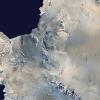 <p>“Upside-down rivers” of warm ocean water threaten the stability of floating ice shelves in Antarctica, according to a new study led by researchers at the University of Colorado Boulder’s National Snow and Ice Data Center. The study highlights how parts of Antarctica’s ice sheet may be weakening due to contact with warm ocean water.</p>
<p>“Upside-down rivers” of warm ocean water threaten the stability of floating ice shelves in Antarctica, according to a new study led by researchers at the University of Colorado Boulder’s National Snow and Ice Data Center. The study highlights how parts of Antarctica’s ice sheet may be weakening due to contact with warm ocean water.</p> <p>Like an albatross scanning for pods of squid in a vast ocean, molecules on solid surfaces move in an intermittent search pattern that provides maximum efficiency, according to new research from the University of Colorado Boulder.</p>
<p>Like an albatross scanning for pods of squid in a vast ocean, molecules on solid surfaces move in an intermittent search pattern that provides maximum efficiency, according to new research from the University of Colorado Boulder.</p>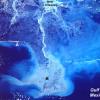 <p>For the half billion people living on the world’s river deltas and the hundreds of millions of others who rely on them for water, food, shelter, transportation and energy, the news is not good. More than two-thirds of the the world’s 33 major river deltas are sinking and the vast majority have experienced flooding in recent years, primarily a result of human activity.</p>
<p>For the half billion people living on the world’s river deltas and the hundreds of millions of others who rely on them for water, food, shelter, transportation and energy, the news is not good. More than two-thirds of the the world’s 33 major river deltas are sinking and the vast majority have experienced flooding in recent years, primarily a result of human activity.</p>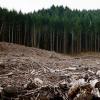 <p>The newly-exposed edges of deforested areas are highly susceptible to drastic temperature changes, leading to hotter, drier and more variable conditions for the forest that remains, according to new research from the University of Colorado Boulder.</p>
<p>The newly-exposed edges of deforested areas are highly susceptible to drastic temperature changes, leading to hotter, drier and more variable conditions for the forest that remains, according to new research from the University of Colorado Boulder.</p>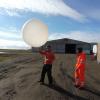 <p>Boulder’s Gijs de Boer, 36 is one of 106 recipients of the Presidential Early Career Awards for Scientists and Engineers, the highest honor bestowed by the U.S. government on science and engineering professionals in the early stages of their independent research careers. The CIRES/NOAA scientist works on remote sensing of environmental changes.</p>
<p>Boulder’s Gijs de Boer, 36 is one of 106 recipients of the Presidential Early Career Awards for Scientists and Engineers, the highest honor bestowed by the U.S. government on science and engineering professionals in the early stages of their independent research careers. The CIRES/NOAA scientist works on remote sensing of environmental changes.</p>- <p class="p1">Five community-led projects from across Colorado will explore air and water quality and sustainable energy development with support from the latest round of grants from the AirWaterGas Sustainability Research Network based at the University of Colorado Boulder.</p>
<p class="p1"><span class="s1">The grants aim to improve understanding of the risks and benefits of oil and gas development as identified by community organizations.</span></p> 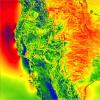 <p>The United States could slash greenhouse gas emissions from power production by up to 78 percent below 1990 levels within 15 years while meeting increased demand, according to a new study by NOAA and University of Colorado Boulder researchers.</p>
<p>The United States could slash greenhouse gas emissions from power production by up to 78 percent below 1990 levels within 15 years while meeting increased demand, according to a new study by NOAA and University of Colorado Boulder researchers.</p>


